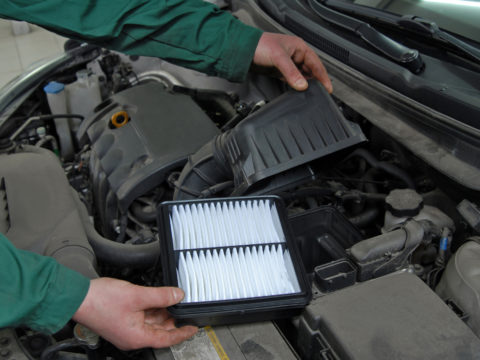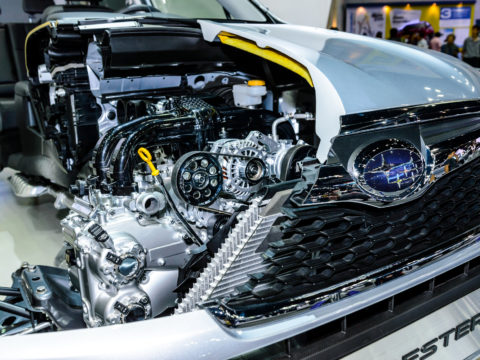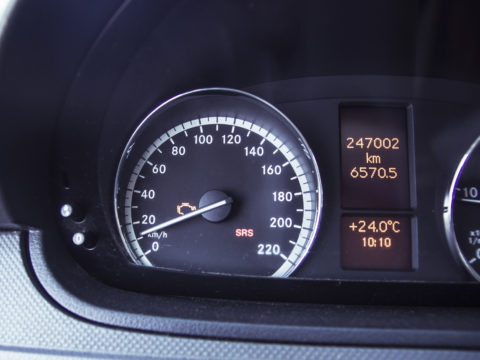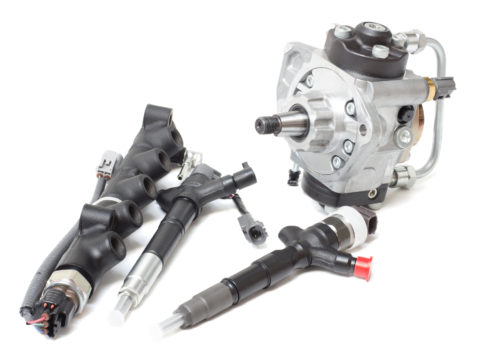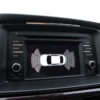Getting into your car to find that it sounds a bit off, backfiring, or is sputtering on and then dying off, can be alarming.
A sputtering engine might mean nothing, or it might be a cause for concern as it is the sign of a bigger, more complicated problem.
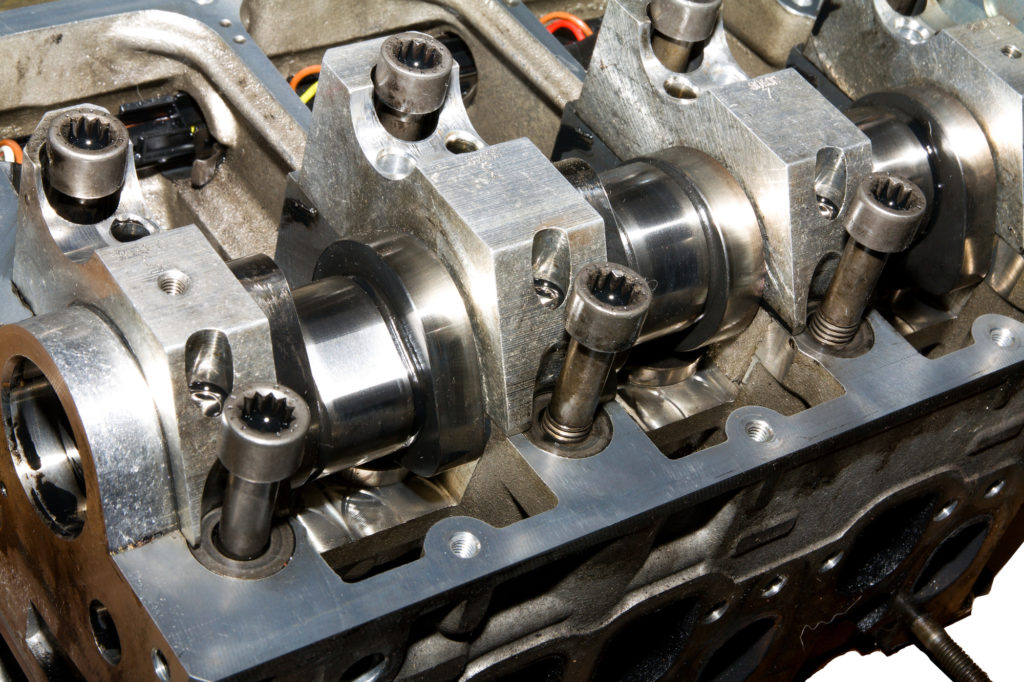
Contents
What Does a Spluttering Engine Mean?
The reason that your engine sputters is due to the inefficiency of combustion.
This inefficiency means that the fuel injected, for one reason or another, is not achieving total combustion.
This problem usually occurs when the car is stopped or during attempts at acceleration.
When something is off, the air-fuel balance isn’t correct, and this can cause many different problems within an engine.
What Does Engine Sputtering Feel Like?
Sputtering feels like your car wants to go, but the engine feels sluggish no matter how hard it tries to accelerate. It might also feel that, while driving, the motor isn’t working to its full ability.
Or you may get a slight shake or shudder when you start or stop.
All of these symptoms can be considered sputtering. It may also remind you of the way running out of gas feels.
What Causes Engine Sputtering?
If you’re lucky, the sputtering noise your engine is making is just a sign that you’re running low on gas. Unfortunately, this isn’t always the case, and other issues might be causing the problem.
Some are easy fixes, but some are not, and all will cause the engine to sound not quite right.
Mass Air Flow Sensor
The Mass Air flow sensor is crucial to any electronically controlled fuel-injection system.
It regulates the amount of fuel the injectors release by understanding the air mass in the piston chamber to ensure the proper air-fuel balance for combustion.
The air density will fluctuate depending on temperature and humidity, which is essential for fuel efficiency.
If the mass air flow sensor is damaged or dirty, it can’t read the air density and won’t perform correctly. This issue leads to too much or too little fuel in the chamber.
Too much fuel causes the excess to burn off instead of combust. Too little doesn’t combust enough to drive the pistons up and down.
Overall, it causes poor performance and sluggish acceleration.
Spark Plugs
Spark plugs are another essential component of a fuel-injection engine. The spark plugs provide the spark that will ignite the fuel and air mixture inside the piston chamber.
This spark allows the pistons to turn the drive shaft and the wheels to move forward. This component may be the culprit behind the spluttering if these are:
- Dirty
- Malfunctioning
- Damaged
Fuel Injectors
We’ve talked about a couple of parts of the engine being fuel-injected, so it only makes sense that the fuel injectors themselves could be causing the engine’s sputtering. These can also:
- Malfunction
- Have faulty wiring
- Be dirty
When fuel injectors don’t work correctly, the fuel-air mixture is again thrown off, and the engine sputters as if running out of gas.
Catalytic Converter
The catalytic converter is a vital component of a vehicle’s exhaust system. This converter is needed as a means to reduce emissions.
It serves its function by turning dangerous carbon monoxide into much less harmful carbon dioxide.
If this component malfunctions, exhaust can back into the engine, cause the converter to overheat, and eventually emit a sulfurous smell akin to rotten eggs. The exhaust backup is what causes the sputtering.
Oxygen Sensor
The oxygen sensor is a device that aims at ensuring the proper fuel-air mixture for combustion.
Operating at 650 degrees Fahrenheit, the oxygen sensor tells the vehicle’s computer whether the fuel is burning correctly and adjusts the proper ratios.
Either too much or too little combustion will cause sputtering from inefficiencies.
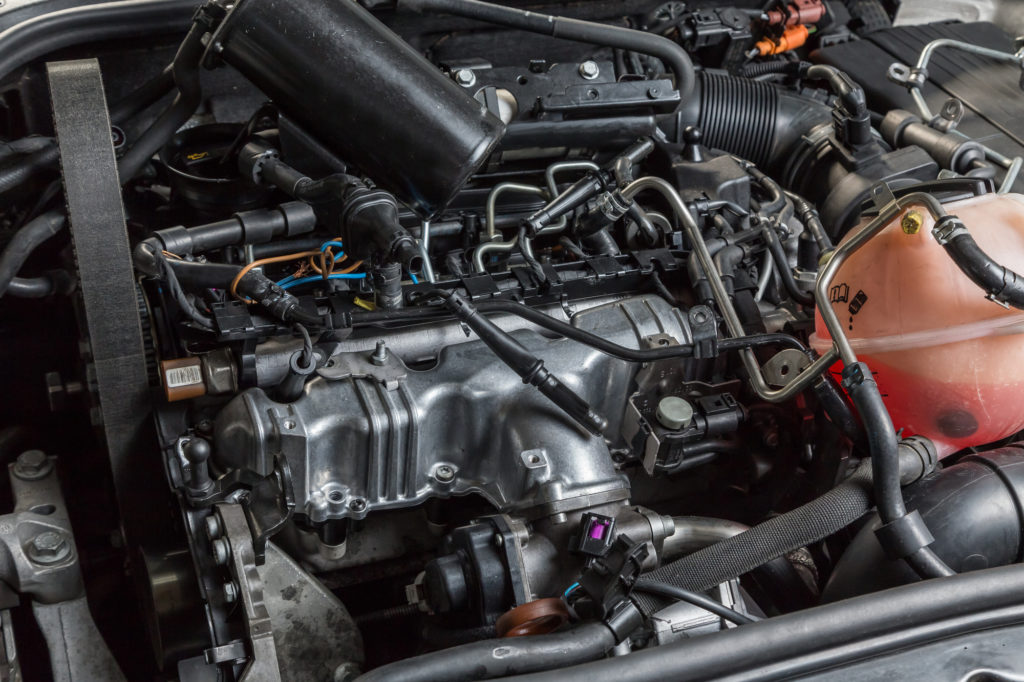
How Can I Stop My Engine From Sputtering?
There are a few simple steps that you can take to prevent and eradicate vehicle spluttering.
Clean More Exposed Parts
There are specific components in the fuel and ignition systems that are more liable to get dirty from everyday use. When components get dirty they won’t perform correctly.
Regularly check and clean the following parts to ensure optimal functioning:
- Spark plugs
- Fuel Injectors
- Seals
- Gaskets
Regular cleaning will ensure the longevity of your vehicle’s engine.
Replace Faulty Fuel System Components
Routinely checking all the components that may have something to do with the sputtering engine is a good idea also. Check and replace any part that you can tell has gone bad.
Test others if you don’t know or take your car to a trusted mechanic.
Test Resistance
Testing the resistance of things like a spark plug, ignition coils, and other electronic parts with an ohm tester will let you see if everything is functioning properly.
All electronics have a resistance they’re supposed to work at, and if you test and it’s off, replace it as soon as possible.
Perform Regular Maintenance
The best cure for a sputtering engine is prevention. Always get the scheduled maintenance taken care of and try and give your car and engine a once-over whenever you can to ensure everything is correct.
This prevention can help you steer clear of future problems.
Is Engine Sputtering Bad?
Engine sputtering is never something that a driver wants to hear. While it could be a minor problem, it could also mean a trip to the mechanic and a chunk of money.
Unless it’s a gas issue, a sputtering engine should be looked at as soon as possible to ensure that irreversible engine damage doesn’t occur.
Is It Okay To Drive a Car With a Sputtering Engine?
While it is okay to drive the car, it may not be the best choice. It can add wear and tear to an engine that is already struggling and damage other vehicle components.
Therefore, the only place you should be driving a sputtering car is the mechanic.

